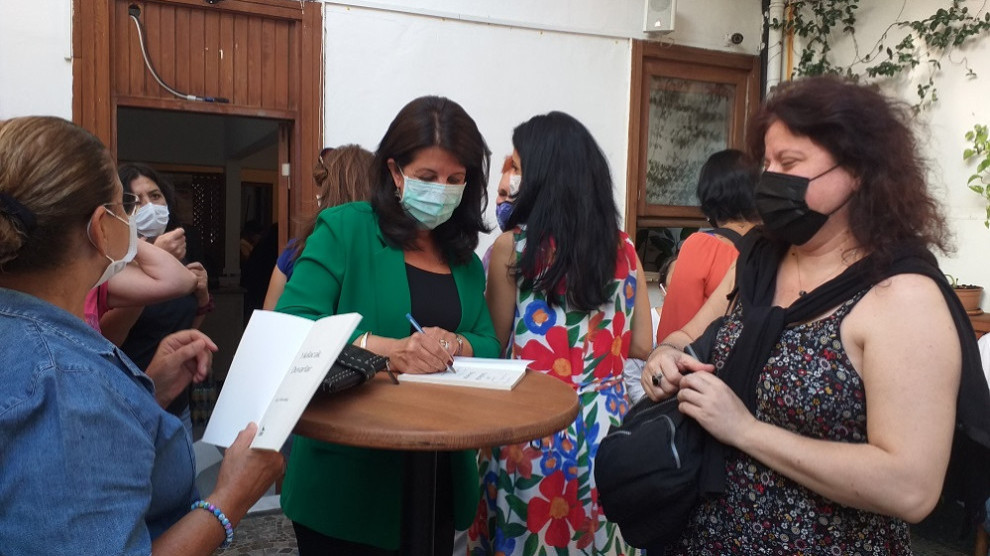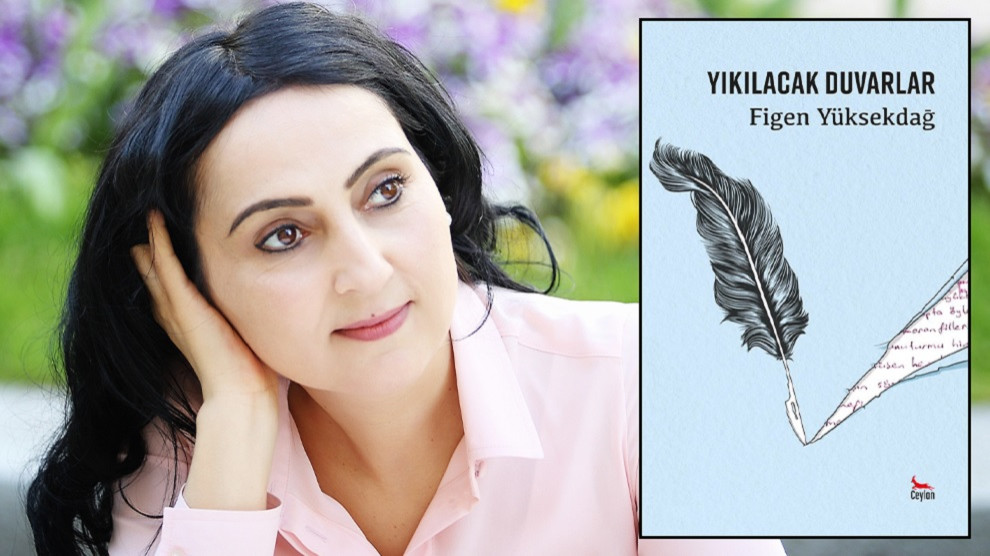Pervin Buldan: The wall must fall
“Our friends in prison are always with us. Your hearts and your pens are with us at all times," said Pervin Buldan of the HDP.
“Our friends in prison are always with us. Your hearts and your pens are with us at all times," said Pervin Buldan of the HDP.

The book “The walls will fall”, written in prison by former HDP chair Figen Yüksekdağ, was presented in Kadiköy, Istanbul, at an event organised by the HDP Women's Council.
The presentation was attended by current co-chair Pervin Buldan, HDK spokeswoman Idil Uğurlu and other politicians and women's organizations.
The author herself could not take part in the event on the premises of the education union Eğitim-Sen, as she has been held as a political hostage in the prison of Kocaeli for almost four years.
Her successor in office, Pervin Buldan, wrote dedications in the books on her behalf. Figen Yüksekdağ was arrested because the government in Turkey saw her struggle as a danger, said Elif Bulut. “Many of our friends are in prison between four walls, but as you can see from this book, they do not allow their minds to be jailed."

Cultural workers from BEKSAV read poems by Figen Yüksekdağ and sang Kurdish and Turkish songs. In the introduction to her speech, Pervin Buldan read the poem “Mother Taybet”, which is dedicated to Taybet Inan, who was shot by the Turkish military during the curfew in Silopi. “Figen Yüksekdağ is being held in prison as a political hostage,” said Buldan adding: “Our friends in prison are always with us. Your hearts and your pens are with us at all times. They write history, novels or - like now - they are with us with their poems. In her poems, Figen describes Turkey and the pain that exists in this country."
Buldan continued: "Each of these poems is an expression of a different tragedy. The story of mother Taybet, the story of the 33 young people murdered on their way to help other young people from Kobane, the descriptions of the pain that young people and women experience in Turkey, are indicative of the reality of Turkey. Figen Yüksekdağ, Selahattin Demirtaş, Gülten Kışanak and Idris Baluken have always been part of the struggle with the books they have written. Others don't write books, but they send us greetings and suggestions or they strengthen us with their criticism. Even when they are in prison, they make a great and valuable contribution to our struggle."